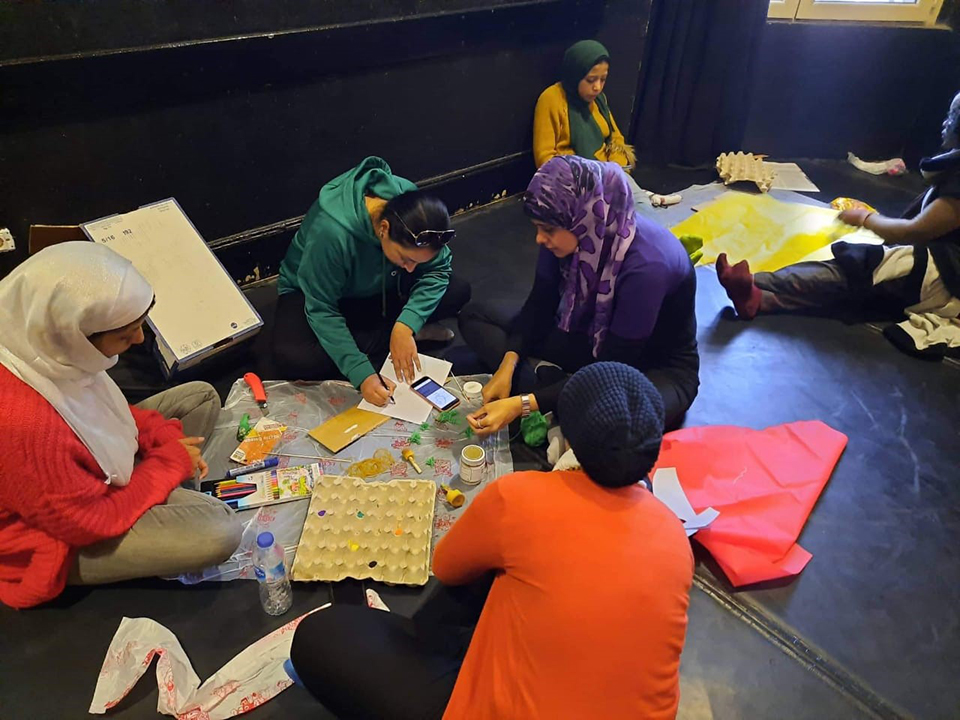In the words of Fatma Saad: “Never let a mental or physical scar stop you from healing and growing; your scars should be a reminder of your strength, not your trauma”
Date:
Fatma Saad is a 33-year-old project coordinator at the Al Shehab Foundation for Community Development in Cairo. She was one of 24 participants in a training programme in Applied Drama for Community Health and Empowerment, which falls under UN Women’s Ending Violence Against Women programme and is generously supported by the United States Agency for International Development (USAID). Saad shares her reflections on the training programme and the positive impact it has had on her personal and professional perspectives.

Saad (in purple) participates in a group activity as part of the training programme. Photo: Courtesy of Dawar for Arts and Development.
“I started volunteering at Al Shehab after I graduated from university because I thought it would be a new experience that would teach me something new. I found it a very rewarding experience, so I applied to work there. I now work as a project coordinator, specialized in projects to address violence against women. Some of the women we serve are subjected to serious forms of abuse – from being physically violated to being denied their legal rights in public or private spaces. For me, witnessing survivors recover and rebuild themselves is the biggest reward of the job.
I learned to work in this field through practice and observation, not through any formal education, so I always look for training opportunities to enhance my knowledge and skills. In that regard, the training programme in Applied Drama for Community Health and Empowerment has meant a lot to me. I gained new perspectives and tools that improved my ability to communicate with communities and individuals.
I remember there was an activity, where we were all asked to draw something random, and my drawing was selected to be interpreted by all other participants. When we started the discussion, I was very surprised and even shocked to realize the variation in point of views and to understand how differently we can all be interpreting and analysing information. This activity taught me to accept our differences and individuality.
I can now consider different perspectives when I communicate with survivors and the way I facilitate awareness-raising sessions has changed dramatically. To my surprise, I now use interactive activities that involve arts and the use of hands. I honestly never imagined myself facilitating this sort of activity. We are now designing an awareness-raising programme that will be based on the applied drama approaches we learned through the training.
The advice I wish to share with all survivors is to never let a mental or physical scar stop you from healing and growing; your scars should be a reminder of your strength, not your trauma.”
Read Arabic